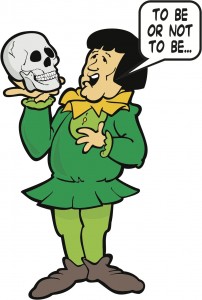It’s fully understandable if the title seems to be cut a little short. It does sound like there should be something following that but I can assure you, I intended it exactly as I wrote it.
Autistic people should be. That’s it.
Autistic people should exist. They should be accepted. They should be treated with respect. They should just, very simply, be.
There’s a really great “flash blog” going on right now, based on the phrase “autistic people should”. The blog can be found here: http://autisticpeopleshould.blogspot.ca/
The reason for this is that some folks noticed that when they typed in “autistic people should” into Google, Bing or even Facebook’s search, the auto-complete feature of those search forms would finish the phrase for them, prompting them to search for “autistic people should die.”
Basically, this means that this phrase is out there so much that all these search places try to make their best guess that it’s most likely what it is that you’re searching for.
This is disturbing, to say the least. I can’t imagine most people feel this way or would ever want to be searching for that.
But whether that is the case or not, it’s a great idea to write up a blog post or to get some notes out there on the internet to force these search engines to offer up some alternative choices, or better yet, to no longer have the current suggestion listed at all.
And so, this post is dedicated to just that. My contribution to the “autistic people should” phrase and how I believe it should end.
It’s as many before me have said, without autistics or at least, autistic traits, there would be far less engineers, mathematicians, scientists, computer people and on and on. Autistics have always been here, even if it seems like it’s a relatively new thing. Autistics have contributed to far more through out history than you could ever imagine.
Without autistics, there would be far fewer savants, fewer advances in technology, fewer discoveries in science. Without autistics, well, who knows… perhaps we never would have even had the wheel. That seems a bit far fetched, right? But think about how long human history is and at what point, somewhere, some autistic may have contributed something important that without it, we could be hundreds of years behind where we are now.
Bringing it a bit closer to home, imagine a young couple, naive and arrogant, their whole lives ahead of them. They don’t know what autism is but assume it’s just bad and that autistics simply just should not be. Then this couple finds themselves as new parents and their child isn’t making eye contact or responding to their name. Would these people still feel as they did before? Would they still think that their precious little child should die simply because he or she is different? Or would they do everything in their power to ensure that their child has a bright and happy future?
Autistics should be.
Because the alternative is unthinkable.














